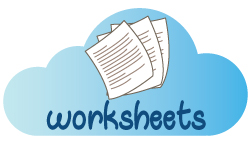What Is a Modal? | List of Modal Verbs
- Grammar Lessons >
- Modals
Overview of Modal Verbs:
- Introduction to Modals
- What Are Modals?
- Examples of Modal Verbs
- How Modals Are Different from Verbs
- Types of Modal Verbs
- Modals for Ability
- Modal for Obligation and Advice
- Which Is Stronger: Must or Ought To?
- Modals of Probability
- Could Have and Should Have
- Can’t Have and Couldn’t Have
- Modals of Permission
- Modals of Requests
- Modals of Offers and Invitations
- Will Have and Would Have
- Modals of Past Habit
Introduction to Modals
If modal verbs were not around, our ability to speak or write sentences would be so limited. We could only say things like "I eat", "I ate", and "I will eat". Hardly could we go beyond these sentences, and sentences that express abilities and possibilities or give advice or make requests would remain just a distant dream. The English world would be so utterly devoid of the diversity and dynamism that it’s famous for. Whether it’s sentences like "I can read German", "You must improve your English grammar", or "They can't have had a better deal", modal verbs abound in our everyday use of the English language.
What Are Modals?
A modal is a special verb used before a main verb to express ability, obligation, possibility, promise, advice, suggestion, and so on. Modal verbs are very different from normal verbs. We use modal verbs to talk about our opinion or attitude about something. The opinion or attitude expressed in “Dave can do it” is different from "Dave should or must do it". Similarly, "You should have written the assignment earlier" is totally different from "You could have written the assignment earlier".
Examples of Modal Verbs
You must be Alyssa’s brother. (The modal "must" is used to say that the speaker is really certain that the person is Alyssa's brother.)
We should pass this test to get into university. (The modal "should" is used to express obligation. In other words, we have to pass the test in order to be able to start our studies.)
Too much junk food can be really bad for you. (The modal verb "can" is used to express a general truth.)
You may go now. (The modal "may" is used to express permission.)
This might be your last chance. (The modal "might" is used to express a possibility.)
How Modals Are Different from Verbs
Modal verbs are different from normal verbs in many ways. Here, we are discussing the four major differences.
-
Modals don’t use s for the third person singular.
Examples
Joshua can write French.
He should be home by 5.
-
Modals form questions by inversion.
Examples
Can they borrow the book? (They can borrow the book.)
Should I wait? (I should wait.)
-
Modals don’t have the word to after them. In other words, we don’t say "I can to go", and we only say "I can go". The modal ought to is an exception to this rule, though.
Examples
We must abide by the rules.
You can enter the premises only with a pass.
You ought to do things on your own.
-
Modals have no proper past tense although "could" and "would" can be used to refer to the past.
Examples
Martha could swim when she was 5.
As a child, Hudson would eat lots of cookies.
Types of Modal Verbs
Based on their functions, modal verbs are divided into different types. We are now going to dig deep into the types of modal verbs, which make these verbs such a wonderful grammatical treat.
Modals for Ability
Modal verbs that express ability include can and could. We use them to talk about both a general ability and specific ability.
Examples
Ramon can’t play the piano. (General ability)
Mathew can drive any car. (General ability)
I can’t eat anymore – I’m too full. (Specific ability)
We can’t go out now – it’s raining. (Specific ability)
Priscilla could read and write when she was four. (General ability)
Amanda’s dad couldn’t swim. (General ability)
Modals for Obligation and Advice
Modal verbs expressing obligation and advice include should, must, have to, need to, and ought to. They are used to say that doing something is great, advisable, or essential. This type of modals is further divided into modals of strong obligation, weak obligation, and no obligation.
Examples
You must accompany Little Jasper at all times. (Strong obligation)
I need to buy some new clothes. (Strong obligation)
You don’t need to do it now. (No obligation)
You should visit your ailing grandparents. (Weak obligation)
Which Is Stronger: Must or Ought To?
Must is the most emphatic and most forceful of the trio: must, ought to, and should. While ought to is not as strong as must in its emphasis, it is stronger than should. Should is the least emphatic of all the three.
Examples
You must sign this document.
You ought to help the poor.
You should take the train to the city.
The first sentence has used must as it talks about signing a document, which in normal circumstances is absolutely essential. The second sentence is about helping the poor, which is greatly recommended but not as essential as signing the document. So, we use ought to there. In the final sentence that is about taking the train to reach a place, we have chosen to go with should as the idea here – going by the train – is neither a must nor strongly recommended. It’s great to go there by the train as doing so will make our journey more comfortable although there are other ways to reach the city like taking the bus or a taxi cab.
Modals of Probability
Common modal verbs that express possibilities include may, might, could, and must. There are modals of probability that talk about the past such as might have, could have, and must have, too. Please note that the emphasis and degree of probability change depending on which of the modals – may, might, must, etc., we use in a sentence.
While the present sentences that express possibility are formed with may/might/could, etc., + infinitive without to (may go, might go, and so on), the past sentences are formed with might/must/could, etc., + have + past participle (might have gone, must have gone, and so on).
Examples
Barry may come today. (A present modal denoting maybe)
Grandma must be home now. (A present modal expressing a near certainty)
Alex could be working. (A present modal denoting maybe)
Annie might have found a job. (A past modal expressing a possibility)
Mr. Green must have gone abroad. (A past model denoting a near certainty)
Could Have and Should Have
Could have + past participle is used to say that something was possible in the past and there was every opportunity for you to do it, but you didn’t or couldn’t do it.
Examples
I could have passed the test by writing it a second time, but I didn’t.
Joshua could have lived with his parents, but he chose to live alone.
Should have + past participle is used to say that something was a great idea to do in the past, but you didn’t or couldn’t do it. It’s pretty much like advising someone on the pros and cons of what they ended up doing or not doing in the past whereas ideally what they did was not the best choice and they should instead have done something else.
Examples
You should have worked in New York City one more year. (In reality, the person left New York.)
Daniel should have studied math rather than chemistry. (But, he registered for a chemistry course.)
Can’t Have and Couldn’t Have
Can't have + past participle is used to express a present judgment about a recent situation where the context is still relevant at the time of speaking. It is also used to talk about the impossibility of a past event.
Examples
If you have failed the test, you can't have prepared well. (It expresses a judgment. In other words, the person didn't prepare enough, so they failed.)
Harper looks glum; he can’t have learned about the new gift Dad has bought him. (Harper looks sad and gloomy, so it’s highly likely that no one has told him the good news – that Dad has a new gift for him. Because if someone had done, that would cheer Harper up, and he would look radiant rather than dull.)
Couldn’t have + past participle talks about something you couldn’t do in the past even if you tried or wanted to do. It is also used in past hypothetical conditions and incomplete conditionals.
Examples
I couldn’t have finished reading the book by Monday. More than half the book was still remaining.
Armando couldn’t have eaten at the restaurant. The government had declared a strict lockdown in the city.
If I hadn’t read the book again, I couldn’t have found the answers to many questions.
If Wayne hadn’t slept well, he couldn’t have powered through the 4-hour session.
We couldn’t have achieved all this without your support.
Modals of Permission
Modals used to express permission include can, could, and may.
Examples
Can I borrow your computer?
Could I speak to Mrs. Watson, please?
May I take a few moments to introduce a new product?
Could I be away from work on Tuesday?
Modals for Requests
Modal verbs that indicate a request include can, will, could, and would. While could and would are relatively more polite ways of asking someone to do something, can and will are less polite.
Examples
Could you lend me 50 dollars, please?
Would you write this number for me, please?
Can you lend me 50 dollars, please?
Will you write this number for me, please?
Modals for Offers and Invitations
We use can, shall, or could to make an offer. Modals used to express invitations include would and must.
Examples
Can I fix the computer for you?
Shall I help you with the baggage?
If you want, I could get this done for you.
Would you like to come home for dinner tomorrow?
We must remain in touch about this business.
Will Have and Would Have
Will have is used to make predictions. Would have is used as the past tense of will have, and it’s also used in conditionals.
Examples
By this time next year, we will have moved to New Jersey.
It was 7.30. Grandma would have had breakfast.
If it hadn’t rained, we would have played.
Modals of Past Habit
Modals used to express a past habit include used to and would.
Examples
When we were in London, we used to eat fish and chips.
As a child, Marsha would not sleep until Grandma read her a story.
The Sanders used to run a bookstore.
Sometimes, the teacher would ask us to repeat the same assignment again and again.

Hone your skills using our free printable Modal Auxiliaries Worksheets.

